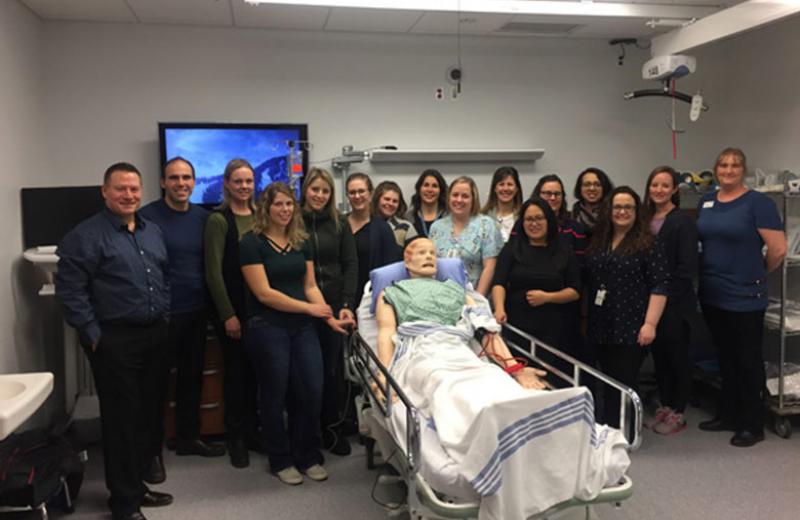For health sciences students, clinical simulation is an important part of learning. It lets them practice on realistic mannequins known as simulators without risk to patients. And of course, their instructors' knowledge of simulation techniques is key.
On January 11, Northern Health’s Clinical Simulation Program hosted 16 nursing instructors from the College of New Caledonia (CNC) for a simulation training session.
The all-day session took place at the University Hospital of Northern British Columbia (UHNBC) in Prince George, and instructors from CNC’s Prince George and Quesnel campuses participated.
The training focused on the debriefing part of simulation education. This is when the instructor and students discuss the simulation session after it’s over, discussing what went well and areas for improvement. This is the first time a debriefing workshop has been offered by Northern Clinical Simulation.
“This session is part of the evolution of simulation use in year 2 at the CNC campuses,” says Nancy Esopenko, a CNC instructor in the Northern Collaborative Baccalaureate Nursing Program. “In 2018 we began a pilot project for students around simulation. We wanted everyone to take part in simulation during their medical or surgical rotations at UHNBC and GR Baker Hospital in Quesnel. Before this, the students’ exposure to simulation varied. We wanted all our students to learn using simulation.”
By taking this training, instructors are increasing their knowledge around simulation. This makes the sessions with students even more valuable.
“Debriefing is a very important part of simulation training and overall learning. It enhances the experience for both instructors and students. This training has given our instructors the tools to have difficult conversations,” says Nancy, who’s also Year 1 & 2 Coordinator in the nursing program. “It was very valuable to watch experienced instructors word their questions. We appreciated the chance to practice before teaching students.”
The experience has been beneficial for both new and experienced instructors: “They’re more confident in their approach and communication style,” says Nancy. “All the instructors learned new ways to engage in conversations and provide feedback. They liked playing the student role during the simulation scenarios, too – it let them see things from the student perspective.”
The commitment shown by the CNC instructors in taking part in these workshops will a go a long way in training future nurses for years to come.














Comments